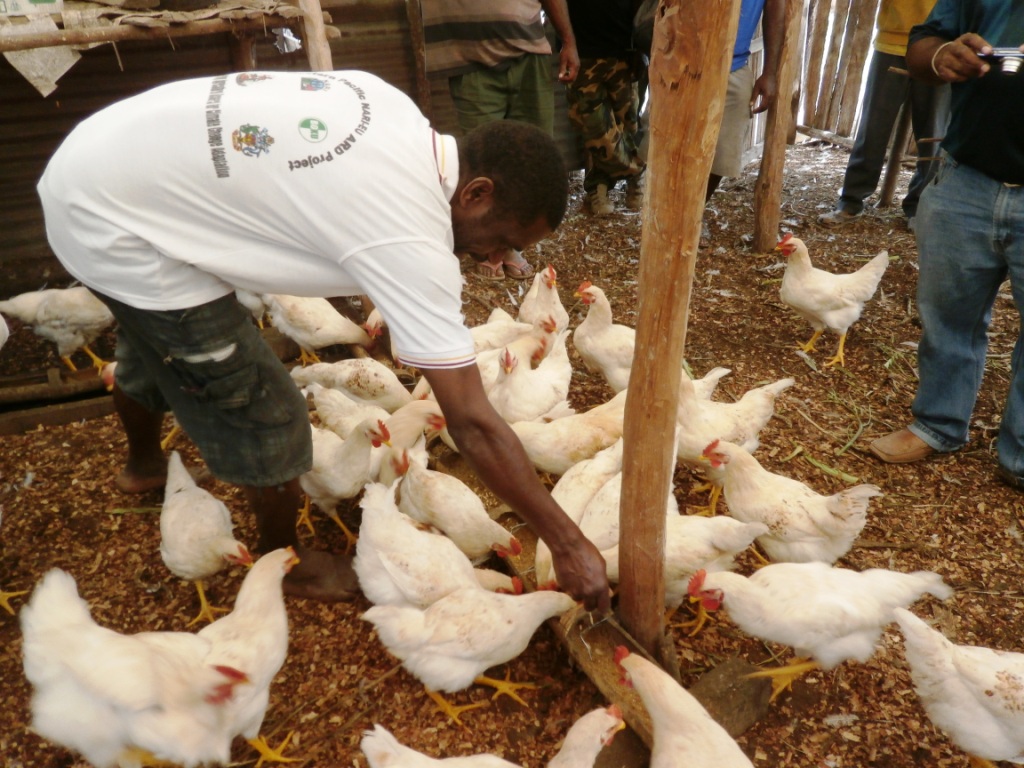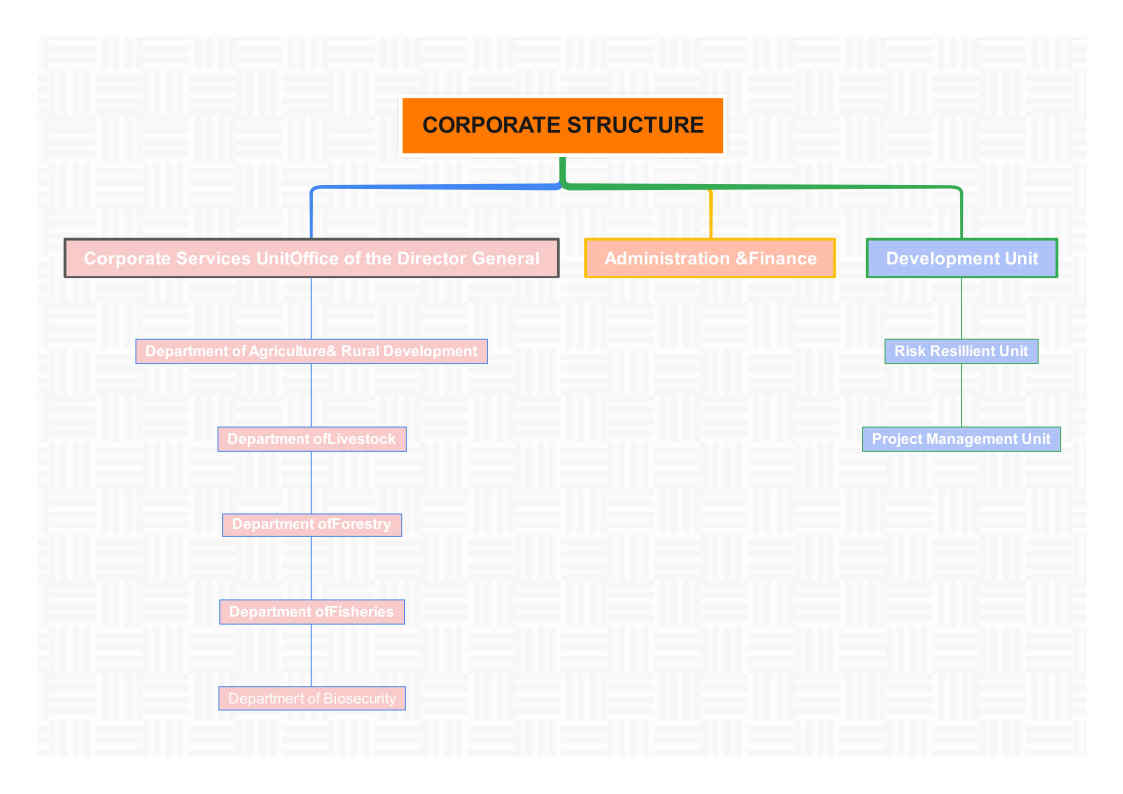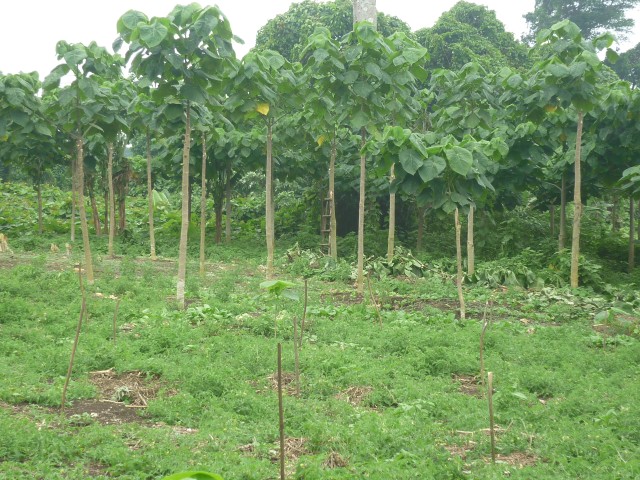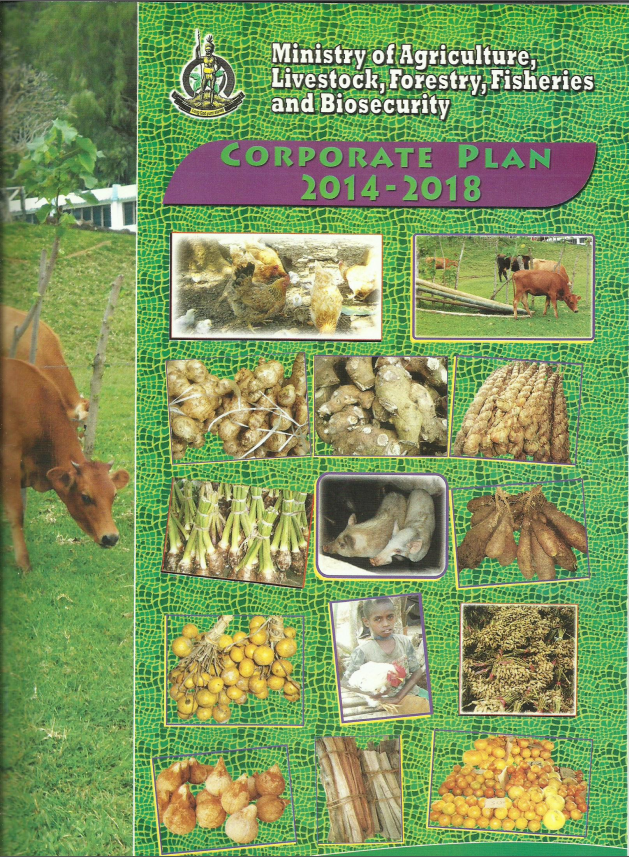About Us
Background Information
Vanuatu is an island nation with a relatively small land area and population. Vanuatu covers a land area of 12,189 km2 and its EEZ is 684,000km2. Only one third of the total cultivable land is presently farmed.
Transport services, both inter- and intra-island are a major constraint to marketing and this to increasing productivity and the volume of production.
The Agriculture, Forestry and Fishing sectors account for around 15% of total GDP and for almost all merchandise exports. Vanuatu is an agriculture-based economy with copra, cocoa, kava and cattle continuing to dominate the sector.
Since 2003, the agriculture sector has grown at an annual rate of 3.3% compared to 2.8% growth for the economy and an average population growth rate of 2.6% per annum.
The government through the Ministry recognizes the role of women and youth and vulnerable groups in agriculture. Net growth of the private sector and its subsequent leadership in driving their respective industries is one of the key aims of the Ministry.

Our Mission
forests and aquatic resources to enhance the socio-economic oportunities for Ni-Vanuatu.
Our Vission
MALFFB Corporate Plan 2014-2018
Introduction
The Ministry of Agriculture, Livestock, Forestry, Fisheries and Biosecurity's (MALFFB) obligation is to develop a Corporate Plan to assist its line Departments to develop their annual business plan. The production and finalization of this document is the result of inputs gathered from CSU, Productive sectors, other relevant stakeholders, Government of Vanuatu's Priority Action Agenda (PAA) and MALFFB's Overarching Productive Sector Policy.
By developing annual business plan in accordance with these corporate plan objectives, will enable surely MALFFB to achieve the Overarching Productive Sector Policy Goals which will also transform Vanuatu to Healthy, Educated and Wealthy Nation.
Along the process of developing and finalizing the Corporate Plan, emerge very urgent needy areas that have been treated as Priority Areas in this document. These need areas were identified at all level of the Ministry starting from the Cabinet, Corporate Service unit, Productive Sectors, industries and Communities.
- Institutional Capacity Building
- Production
- Rural Development
- Market Access
- Food Security
- Climate Change, Climate Variability and Disaster Risk Reduction (DRR)
- Research and Development
- Monitoring and Evaluation
As part of Institutional Capacity building there is a need to develop or review existing Legislation and Regulations to govern and protect the operations and services provided by the Productive Sector.
Human resources is a critical area to seriously look at and ensure the Ministry is adequately staffed to facilitate quality service provision to the entire population of Vanuatu regardless of ethnic origin, gender and vulnerable group.
In addition to that it is also vital to have staff who are suitably qualified and remunerated to enable them to effectively serve the people of Vanuatu. Annual staff performance appraisal is required as an indicator to measure and monitor the performance of staff at all level of responsibilities.
Institutional structures need to be reviewed and adjusted to accommodate the pending and chronic needs that would contribute to Vanuatu's GDP.
Financial Resource is the main and important element to drive the successes that need positive inputs and commitments from the Government. The contribution from Donor partners towards the productive sector over the past years has already reflect positive impacts to the productive sector, particularly the rural areas, and the relationship and work partnership is to be acknowledged and maintained.
Appropriate Infrastructure Development need to be put in place or upgrade and maintain at all level to avoid unnecessary outflow that may be interrupt the implementation of Program activities. There is a need to put in place a mechanism or management system to ensure that the infrastructures and assets are maintained and sustained.
To address the declining trend, there is a need to review current legislation, appropriate technology to improve and increase production, create new development initiatives and approaches.
It is indeed believed that by revitalizing extension service the production will increase as expected and will boost the Vanuatu economic growth and reduce the current trend of urban drift.
The Productive sector needs to be strengthened in all areas to be able to actively participate in rural development processes.
The strengthening of extension service in the production sector to drive this rural development process will take a bottom up approach supported by research and appropriate funding. All existing programs will be re-visited and enhanced and therefore will need a wide range of capacity building. Therefore extension service needs support and a collaborative approach to achieve the nationwide expectations.
Access to credit for rural development is a major constraint for producers - the Ministry will continue to work to address this by assisting farmers with sourcing funding. The MALFFB will work collaboratively with the Vanuatu Agriculture Bank to consider avenues where access to credit for rural producers could be further enhanced.
The Ministry also needs to facilitate networking between producers and buyers/middle-men to ensure that products get from the farm to the consumers. Value-added products are feasible options for market access but require that farmers' capacity to produce and sell these is strengthened.
Collaboration with relevant Government Ministries and key stakeholders is very much needed in terms of export. Bilateral relationship needs to be revisited and strengthened to by considering the balance of trade with Regional and international partners. Biosecurity also needs to be strengthened in order for it to meet all international obligations and standards that enable trade to take place. Preparedness and response plans must be in place to address any incursions or outbreaks of pests and diseases.
The Vanuatu National Marketing and Consumer Cooperative Federation (VNMCCF) will be established to facilitate the market access and improve the livelihood of the people of Vanuatu.
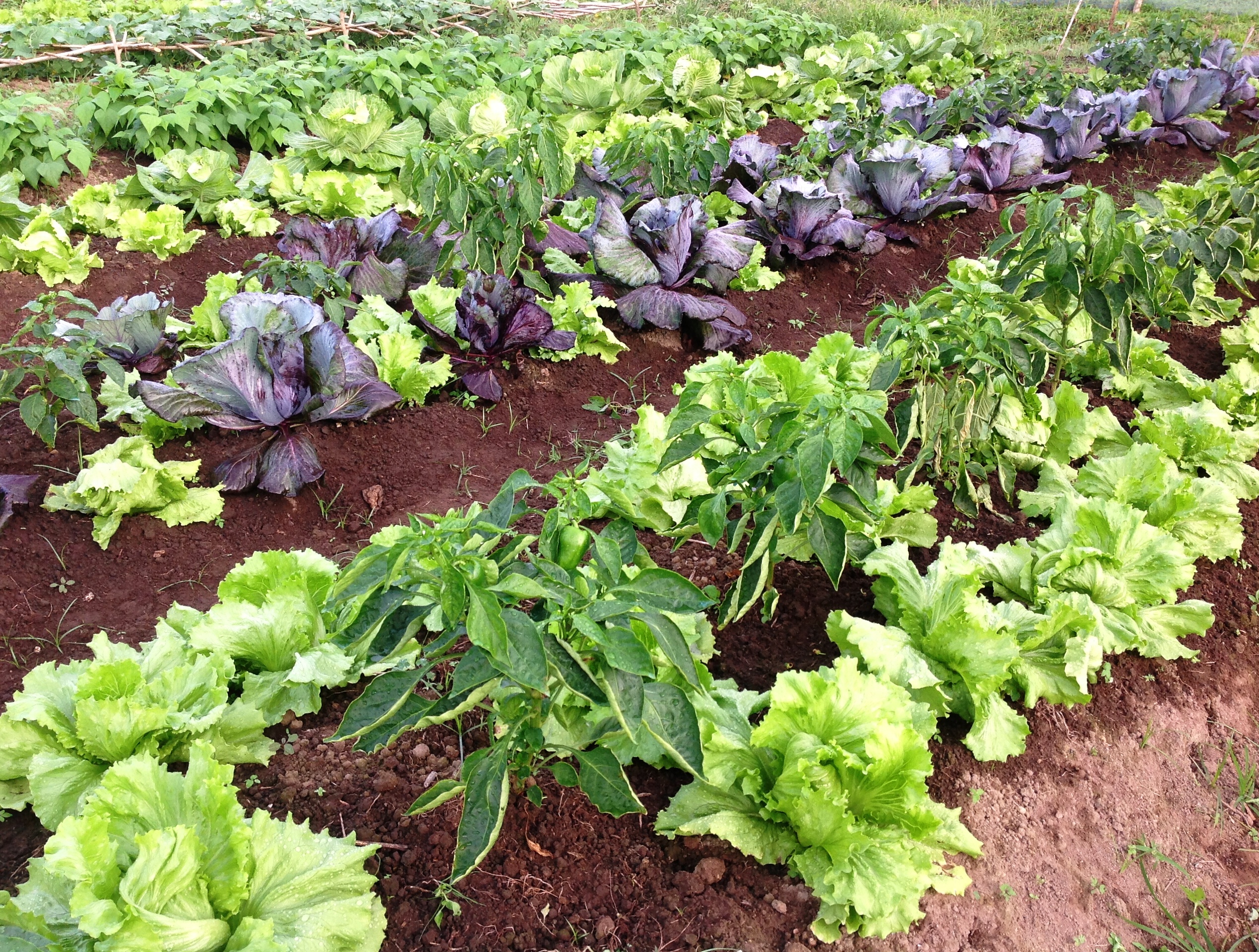
Food security is commonly defined as a situation where all people at all times have physical, social and economic access to significant, safe and nutritious food to meet their dietary needs and preferences for an active and healthy life.
Historically, Vanuatu has managed to address food shortages through domestic food production and importation.
However, over the past 20 to 30 years, consumption patterns have shifted from fresh local foods to manufactured or processed foods that are generally easier to prepare but may also be less healthy.
These changes along with declines in physical activity have led to high rates of obesity and diabetes.
Alongside this growing problem of chronic disease, problems of under nutrition and vitamin and mineral deficiencies (e.g. iodine, iron, vitamin A, folic acid and zinc) persist in vulnerable groups, contributing to birth defects, reduced brain development and learning ability of students and increased susceptibility to diseases.
These food-related health problems are detrimental to the productivity of the country and may well be exacerbated by the impacts of climate change and global market pressures on food security.
In addition, high population growth and high urban migration rates put a lot of pressure on land and production systems further exacerbating the problem of food availability. The Vanuatu NCD Risk Factor STEPS report showed the effect that this poor diet is having on the country's population.
| Condition | Percentage of adults affected |
|---|---|
| Obesity (BMI = 30 kg/m2) | 18.8 |
| High blood pressure | 28.6 |
| Diabetes | 21.2 |
| Proportion of adults affected by lifestyle diseases according to Vanuatu NCD Risk Factor STEPS report | |
High volumes of food imports and increased consumption of nutritionally inferior foods call for greater use of locally produced foods. This means that domestic trade and consumption of locally produced foods must increase.
Many locally produced foods however are relatively more expensive than their imported substitutes. MALFFB will work with food producers to improve production efficiency which should contribute to lowering local food prices.
In addition MALFFB will work to ensure that the fisheries, livestock and agriculture sectors continue to maintain a strong focus on food security and the enhancement of rural livelihoods.
Biosecurity also plays an important role in the protection of the productive sector from incursions of pests and diseases which can reduce the availability of food.
Climate change, Climate variability and Disaster risk reduction are cross-cutting issues affecting all development sectors. Vanuatu is already experiencing disruptive changes consistent with the expected effects of climate change - more erosion from rains and storms; floods; droughts; saltwater intrusion on land due to storms; coral bleaching from increasing seawater temperatures; more widespread and frequent vector-borne diseases due to increasing areas of suitable habitat for the vectors with warmer temperatures; and periods of exceptionally high sea levels.
Therefore, Climate Change and DRR adaptation and mitigation strategies need to be mainstreamed into Productive sector plans aiming at improving the livelihoods of communities through resilient and sustainable practices. Community knowledge on the impacts of Climate Change and DRR in the productive sector will need to be enhanced and impacts addressed through research, development and distribution of resilient terrestrial and marine resources.
The Ministry will also look at available means of utilizing renewable energy for rural development.
Research and development need to be ongoing to ensure that agricultural practices are relevant to consumer needs and changes that are affecting our world such as climate change. The productive sector is already utilising information from past research to improve their farming practices. Value adding is one of the areas which the Ministry is researching as it improves the marketability of products. There is much room for improvement in the dissemination of research results and in the implementation of research. For example research information can be better disseminated if coordinated by the Vanuatu Research Council (VRC) and bodies such as the National Advisory Board should refer potential research to the relevant department.
Depending on the needs of farmers, the Ministry consults with VARTC on research and development projects. For example there is work being done by VARTC to research alternative farming systems and develop varieties of root crops that are resilient in the face of climate change - the results will be the responsibility of the Ministry to disseminate to farmers. Research will ensure that Vanuatu will continue to sustain production despite the effects of climate change and other external factors.
Animal Research is indeed important for the same reasons as in crop production - climate change is happening and climate change-resilient livestock species are needed - related to this is the preservation of indigenous animal genetics. Feeding trials, pasture improvement and the utilisation of animal waste are also research priority areas.
There are many cases of foreign researchers carrying out studies on Vanuatu's forest species who then take the results and knowledge with them without any benefit to the country. These results should be made available to Vanuatu to benefit us. To ensure that applicable research is done and directly benefits Vanuatu, the Ministry aims to establish a Forest Research Institute that will focus on targeted research on forest species.
Climate change hardiness, increasing forest productivity and market requirements are some of the main areas of focus. There will also be some work on lesser-used tree species on their wood properties and suitability to commercialization. Development of key forest species for dissemination to farmers for agribusiness will also be a priority of this research institute. Seed banks will be produced where seeds are adequately stored for viability. Farmers will have access to research results through the Forestry extension service so they can improve their farming methods and know the suitable tree species for their respective geographic locations.
The Fisheries Research Unit needs to continually monitor fish stocks to ensure that they remain in a healthy and sustainable state. This is an important undertaking to ensure that our fisheries are well managed. Research into fish stocks takes note of numbers, behaviour, reproduction, movements and interaction with other fish species. Another major research activity is that into alternative sources of protein which can be raised in an aquaculture environment. There is also research being carried out on how to better utilize marine resources.
Monitoring and evaluation is an important activity which ensures that the ministry is transparent and accountable in the way that it has spent its budget and donor funding and in the timeliness of its activities. This activity will be regular throughout each year so that all departments can show that their activities have not only been completed in a cost-effective and timely manner but that it has had a positive impact on clients and other stakeholders.
Transparency in the form of monitoring and evaluation programs and documentation can also help the ministry secure funding for future activities from the government and donors. Negative effects, mistakes made and lessons learned will be documented and used to improve future performance.

